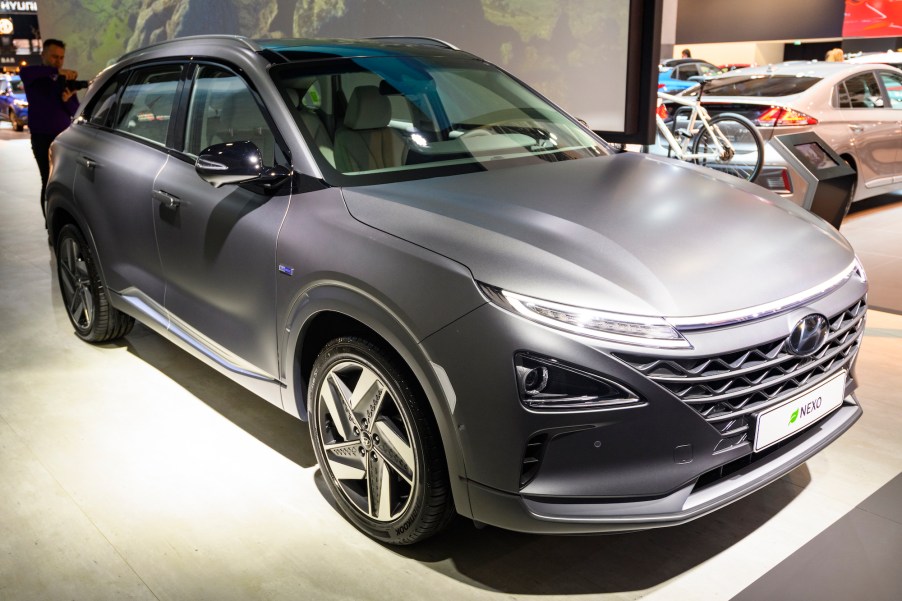
The Reason Why Fuel Cell Vehicles Won’t Outsell EVs Is a Myth
Over the years, hybrids and electric cars have been gaining more traction in the automotive world. Once thought to be dull and efficient, EVs now can clearly perform as well as gas-operated cars. One less common type of electric car on the market is the fuel cell electric vehicle, or FCEV.
Fuel cell vehicles are powered by hydrogen cells rather than an electric battery. FCEVs usually boast greater ranges than hybrids or plug-ins, and they also have faster charging times. Despite this, FCEVs have drawn plenty of skepticism.
The case against FCEVs
An article in The Conversation says FCEVs will never be popular because they rely on hydrogen. Though hydrogen is an efficient fuel source, it loses a good portion of its efficiency through the electrolysis process. It loses even more efficiency once it’s inside the vehicle, meaning drivers might get less range than advertised.
According to Inside EVs, studies have shown that FCEVs retain up to only 35 percent efficiency after the electrolysis process. By comparison, fully electric cars can retain up to 90 percent after the energy conversion process. Even though an FCEV can theoretically hold more power, it runs out of juice much faster than an EV.
The Conversation article also brings up the difficulty in refueling an FCEV. The process isn’t that much different from charging a plug-in or EV, but hydrogen-fueling stations are few and far between. So far, there are only 432 hydrogen fuel stations in the entire world.
In the United States alone, there are 18,000 charging stations for electric vehicles. If FCEVs hope to become as popular as EVs, this has to change. FCEVs can take as little as four minutes to charge, making them worthy competitors against gas-operated cars. However, it’s unclear when or how quickly additional hydrogen-fueling stations can be built.
Electric energy specialists weigh in
The U.S. Office of Energy Efficiency and Renewable Energy still believes FCEVs are the wave of the future. Many people are skeptical of hydrogen as a fuel source because it’s expensive and supposedly unsafe. EERE assures that hydrogen tanks are put through just as many safety tests as regular gasoline tanks.
FCEVs themselves are quite pricey, and many people think that’s due to the hydrogen cell battery. However, hydrogen itself is fairly inexpensive, and 10 million tons of it are produced annually. Hydrogen cars are currently the most expensive vehicle to refuel, $4 to $6 more than the gasoline-equivalent.
However, EERE believes this would change if hydrogen were produced for cars at a higher volume. And though FCEVs are more expensive to refuel, they can drive up to twice as far as gas-operated vehicles.
EERE also says fuel cells aren’t as expensive as people think. Demand for fuel cells has climbed, which means its production is industrialized and cheaper. And because more big businesses are using fuel cell technology to power commercial vehicles and equipment, it’s more popular nowadays.
Fuel cell vehicles available now
Today’s FCEV market is limited to only three models. The Honda Clarity drives comfortably and offers a long range. Plus, it comes with a $15,000 fuel credit from Honda. Then there’s the Toyota Mirai. MotorTrend says it’s more fun to drive and boasts a better range than the Clarity. Finally, the Hyundai Nexo is the sole fuel cell SUV. It comes with free hydrogen fuel for three years.
All of these vehicles are sold only in California, where most hydrogen-refueling stations are located. Though FCEVs aren’t as efficient as other cars right now, cheap fuel cell costs and more charging stations could level the playing field.



